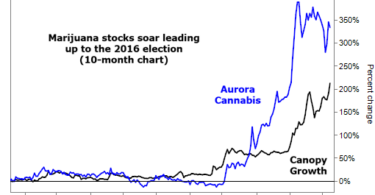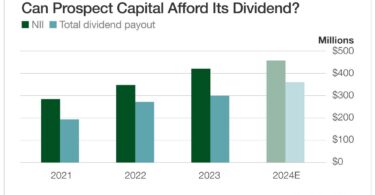By Money and Markets Staff,Money & Markets, LLC, 2024-08-03
Editor's Note: We're featuring another piece from Crowdability's Matt Milner in today's Money & Markets Daily. The former Wall Street exec, startup founder and venture capitalist is now helping ordinary people invest in — and profit from — private startups. Keep your eyes on your inbox for ways to follow Matt and his team at Crowdability into incredible opportunities. Enjoy!
3 Surprising Tips for Finding 10-Bagger Startup Investments
When looking at a startup investment, you might be tempted to focus on things like the company's product or competition.
And certainly, those are important factors to consider.
But as we've learned over the years, other factors are far more likely to impact the company's outcome — and in turn, influence how much money you can make.
So today, I'll reveal three indicators you should review when evaluating a startup investment.
These indicators have been statistically proven to help predict startup success — and as you'll learn, they all have one surprising thing in common.
Indicator No. 1 — A Founding Team
We all love a good tale about a lone pioneer, someone who conquers an industry all on his or her own.
But the fact is, most successful companies get founded by a team.
For example, Standard Oil, one of the most valuable companies in history, was built by John D. Rockefeller and his business partner, Henry Flagler.
Google was founded by GOOGL and GOOG.
Even Facebook had multiple founders.
A number of robust studies back up the value of a founding team.
For instance, one study proved that companies founded by two or more people grow 3.6 times faster than companies with “solo founders.”
With multiple founders, a young company can get more done more quickly — and can help provide a profitable return to investors like you and me.
Indicator No. 2 — A Balanced Team
But it's not enough to simply have multiple founders…
The team also needs to have the right kind of founders.
For instance, if every founder on a team had the same skill set, the team wouldn't be able to divide up responsibilities efficiently.
A team that's balanced — where each founder is an expert in one distinct area — stands a higher chance of success.
Take FB as an example…
Mark Zuckerberg was the technologist and visionary behind the company. But Sean Parker, his founding president, had significant business experience. Parker started and ran multiple tech companies in the past, including Napster and Plaxo.
So at Facebook, Zuckerberg focused on the vision and the technology. And Parker focused on raising money from investors, and building out the company's team and operations.
This balanced-team approach was critical to Facebook's success.
And again, there's statistical evidence to back up what I'm telling you:
One study showed that balanced teams raise 30% more money, and generate 2.9 times more user-growth as compared to unbalanced teams.
Indicator No. 3 — Domain Experience
There's also another critical indicator to review when evaluating a startup's team. It's something we call domain experience.
In other words, does this team have significant experience in the industry (the domain) in which its operating?
For example, before starting Standard Oil, John D. Rockefeller had worked in the oil industry for years.
And as I mentioned earlier, before arriving at Facebook, Sean Parker had run multiple tech startups.
Once again, research studies back this up:
Research shows that founders with significant industry experience are far more likely to succeed than their counterparts without experience.
The Secret Ingredient Behind Many Successful Startups
As you may have already noticed, all these indicators have a common element: people.
That's because people are the key ingredient to a successful startup, even more important than a company's product or competition.
One reason for this fact is straightforward:
When companies are just getting off the ground, things will be changing constantly. To stay alive and thrive, a startup often needs to reimagine its product, or target a different market. To use some industry jargon, it needs to pivot.
But throughout all the pivoting, there is one constant: the team.
That's why these three indicators have been statistically proven to correlate to startup success — and to investor success.
So when you're looking for startups to invest in, be sure to use these indicators!
Happy investing.
Best Regards,
![]()
Founder
Crowdability.com
The post 3 Surprising Tips for Finding 10-Bagger Startup Investments appeared first on Money & Markets, LLC.








